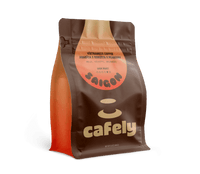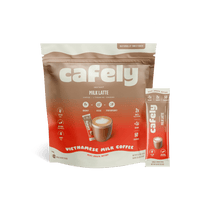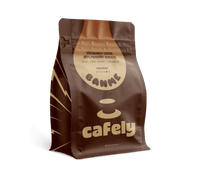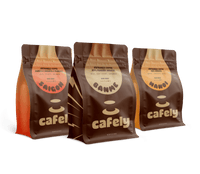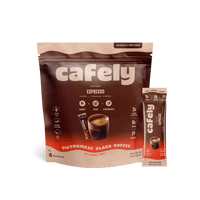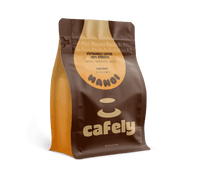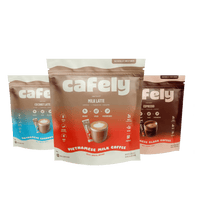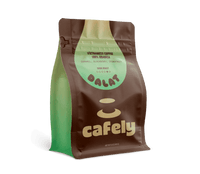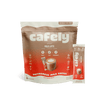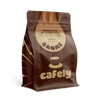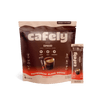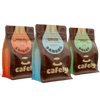Let’s be honest, does anyone like having a tooth out? It’s painful and annoying, and you can’t eat or drink anything (including coffee), for several hours afterward.
But how long should you wait to drink coffee after a tooth extraction?
Most experts recommend a full 48 hours before drinking coffee again — but for smaller removals (one tooth), 24 hours should suffice. Avoid drinking with a straw for at least three days (to avoid damaging any stitching).
This guide contains everything you need to know, from suggested waiting times to complications and alternative hot drinks to enjoy after your procedure.
What Happens If I Drink Coffee After A Tooth Extraction?
There are plenty of reasons why dentists tell you to avoid coffee after having a tooth extraction — they’re not just trying to spoil your day!
Both the caffeine content of coffee and temperature have their risks when combined with an empty tooth socket.
Here are some of the key reasons why you shouldn’t drink coffee too soon after having a tooth taken out:
- Hot beverages can disrupt the blood clots created by your body after the procedure. The clot is vital for protecting the socket from bacteria and infection, and the temperature can open this back up, causing issues.
- Caffeine actually increases blood flow and restricts the blood vessels around the impact site [1]. This slows down the healing process and means you’ll feel sensitive and sore for longer [2].
- As well as dislodging the blood clot and preventing healing, coffee is a dehydrator and can cause dry sockets, which can be painful and lead to infection.
Related: How Long Does Caffeine Last?
How Long to Wait Before Drinking Coffee
Although you should always check with your doctor for specifics on when you can reintroduce coffee post-procedure, there are some general guidelines that you can follow.
As a general rule of thumb, you should wait between 24 and 72 hours after your procedure to enjoy a cup of coffee — depending on the severity of the removal. This is to allow the blood clot to form, starting the healing process and reducing sensitivity around temperature.
There are a few factors that can extend this waiting period:
- If you’ve reintroduced hard or temperature-sensitive food too early
- If the blood clot becomes dislodged
- If you have too much sugar after the procedure
The signs for when you can start to reintroduce coffee include swelling and soreness reduction — this shows that the blood clot has formed and is starting to do its job.
Initially, it’s best to avoid super hot or icy coffee. You should also avoid sugar and milk, as these can irritate the socket and cause a breeding ground for bacteria in your mouth [3].
Related: Best Time to Drink Coffee
Understanding Tooth Extraction & Recovery
In order to understand when and why you need to avoid coffee after having dental surgery, it’s important to know the tooth extraction process and the recovery timeline.
For a tooth extraction, the area is numbed with a local anesthetic before the dentist gently removes the tooth. In some complex cases, they might use a general anesthetic and a scalpel to help cut around the impacted tooth, but the whole area should be numb.
Of course, this kind of removal happens for many reasons including:
- Broken tooth
- Crowded teeth
- Gum disease
- Impacted wisdom teeth
- Severe tooth decay
It’s normal for there to be some bleeding from the wound after a tooth is removed. Naturally, your blood will start to clot to block the wound and start the healing process.
It’s massively important that the blood clot isn’t disturbed as it’s the body’s protective layer that stops bacteria and infection from getting into the gums and jawbone. You’ll be able to see a clot forming in the tooth socket as it tends to be a dark red patch of blood rather than the vibrant red from an open wound.
The average healing time is anywhere between three days and a week, depending on the tooth and the patient. There are a number of ways to slow down the healing — dislodging the blood clot, eating hard food too early, drinking hot drinks before the 72-hour advisory is up, or eating on that side of your mouth before the blood clot has fully formed.
Coffee Alternatives You Can Enjoy After A Tooth Extraction

Of course, just because you can't have coffee for a couple of days doesn't mean you should avoid drinking altogether. In fact, you need to stay hydrated to avoid getting a dry socket.
It’s best to enjoy lukewarm or cold (but not icy) beverages so that the temperate doesn’t dislodge the blood clot and slow the healing process.
Of course, water is the best option as it’ll keep you hydrated and keep everything nice and clean. Smoothies are also a great option, especially if you include fruits that are high in vitamin C, like oranges, for speedier healing [4]. Just make sure you avoid including fruits with small seeds or pips as these have a tendency to get stuck in the socket and can cause infection.
It’s advised that you avoid using a straw. That's because when you suck through a straw, the pressure can dislodge the blood clot or any other protection the doctor might have put in place, like stitches!
When To Call Your Dentist
When you start reintroducing coffee into your diet, you’ll need to look out for signs that you’ve hindered the healing process.
If any of the following symptoms appear, call your dentist immediately:
- Jaw pain
- Increased bleeding in your mouth
- Increased swelling
- Sensitivity to temperature
- Loose stitches
You’ll need to gradually introduce coffee back into your life, starting with a lukewarm black coffee and slowly reintegrating milk and sugar, but that shouldn’t be until your socket has fully healed (around a week or so later).
If your socket continually bleeds, you’re still in pain after a week, or you have white or yellow discharge coming from the socket, it’s time to seek medical advice.
FAQs: Coffee & Tooth Extractions
Now we know the ins and outs of drinking coffee after a tooth extraction, let's dive into a few frequently asked questions.
1. How soon can I drink coffee after a tooth extraction?
It's generally advised to wait at least 48-72 hours before having coffee to ensure the blood clot stays intact and healing isn't hindered. However, you should make sure it’s a lukewarm coffee without milk or sugar to be on the safe side.
2. Why is it bad to drink coffee right after tooth extraction?
Hot coffee can dislodge the protective blood clot at the extraction site, leading to complications such as a dry socket or a bacterial infection, and can even impact the health of your jaw. Your tooth socket will also be very sensitive to temperatures for the first 72 hours.
3. Are there any safe alternatives to coffee immediately after extraction?
Yes, some safe alternatives to coffee for after your extraction include lukewarm or cold beverages like water or herbal teas. These drinks are safe and can help keep you hydrated without risking your recovery.
4. What signs should I look for after I start drinking coffee again?
When you start drinking coffee again, you should watch out for increased pain, swelling, or signs of infection and consult your dentist if these occur. Again, reintroduce coffee slowly, as a lukewarm black coffee, and then increase temperature and dairy additions over time.
5. Can I drink cold brew coffee after the extraction?
It’s not recommended to drink cold brew coffee after a tooth extraction. While cold brew coffee is less likely to disturb the extraction site than hot coffee, it's best to wait the recommended 48-72 hours. This is because the caffeine content can affect blood flow and healing times.
6. Does the type of extraction affect when I can drink coffee?
Yes, with more complex extractions, like wisdom teeth removal, you will probably have a longer waiting period before reintroducing coffee. The general anesthetic and additional trauma to the wound, including scalpel incisions and stitches, make it more likely for there to be complications.
7. Can I drink decaffeinated coffee sooner?
It's better not to drink any coffee — decaf or otherwise — after a tooth extraction. Although decaffeinated coffee is generally less irritating, it's still best to wait for the recommended 48-72 hours to avoid thermal irritation and bacterial risk.
8. How can I make it easier to skip coffee after a tooth extraction?
Prepare by having alternative beverages available around your house, including smoothies and plenty of room-temperature water. It’s also useful to slowly reduce your caffeine intake before the extraction so you can lessen the effects of caffeine withdrawal when you’re already going to be sore and probably grumpy.
10. When is it absolutely safe to resume my regular coffee habit?
Most people can safely resume their regular coffee habits after about a week, provided there are no complications and healing is progressing well. Before this time, it’s either best to avoid coffee or enjoy it at a lukewarm temperature without any milk or sugar to avoid bacterial infection.
References
- Mesas, A. E., Leon-Muñoz, L. M., Rodriguez-Artalejo, F., & Lopez-Garcia, E. (2011). The effect of coffee on blood pressure and cardiovascular disease in hypertensive individuals: a systematic review and meta-analysis. The American journal of clinical nutrition, 94(4), 1113–1126.
- Ojeh, N., Stojadinovic, O., Pastar, I., Sawaya, A., Yin, M. Tomic-Canic, M. (2013). The effects of caffeine on wound healing. Int Wound J, 13, pp. 605-613, 10.1111/iwj.12327
- Seyedi Moghaddam, S., & Neff, A. (2022). Avoidance of milk and dairy products after oral surgery-is such a recommendation still valid? A cross-sectional study among German and international oral and maxillofacial surgeons and dental practitioners with a review of the literature. Oral and maxillofacial surgery, 26(4), 563–573.
- Bechara, N., Flood, V. M., & Gunton, J. E. (2022). A Systematic Review on the Role of Vitamin C in Tissue Healing. Antioxidants (Basel, Switzerland), 11(8), 1605.
